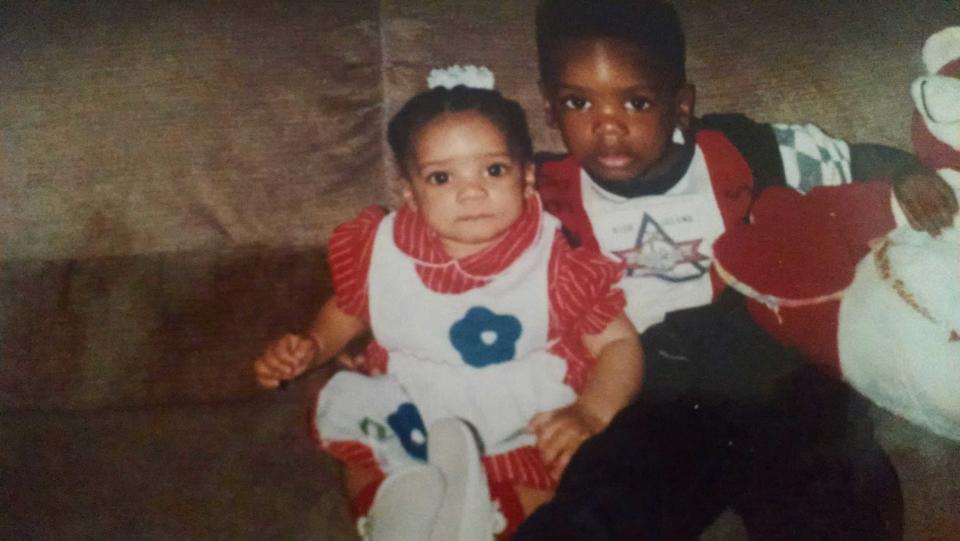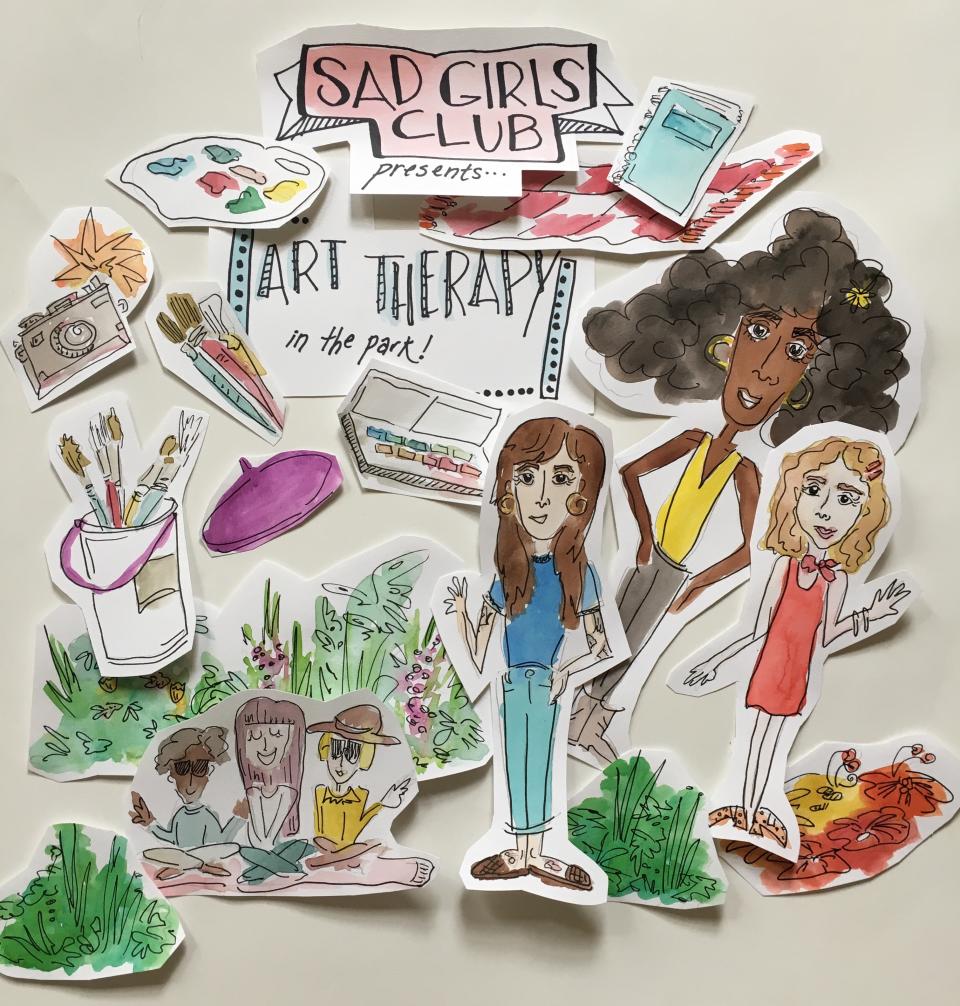Sad Girls Club founder's film about depression ignites a worldwide conversation about 'Gen Z' and mental health
Growing up in the Bronx, N.Y., 28 year-old filmmaker and activist Elyse Fox never saw herself becoming Generation Z’s role model for mental illness. Raised in a Caribbean household in which serious issues were never discussed, Fox silently fought a debilitating sense of isolation and inexplicable sadness throughout grade school.
“I still felt a lot of shame to even discuss mental health, let alone me be a part of that community,” she tells Yahoo Lifestyle. “I didn’t hear anyone speaking about these things, so I literally thought I was a monster that was suffering or had done something to experience this type of pain and loneliness.”

Masking her depression at school behind good grades and a devotion to track and field, Fox couldn’t escape her brushes with mental illness at home. She recalls her mother exhibited signs of depression but was never formally diagnosed, and would hardly leave her bed, even for meals. And Fox’s escalating loneliness followed her everywhere, first to college then 3,000 miles away to Los Angeles, where her world began to unravel.
As a postgraduate filmmaker, Fox wound up in an abusive relationship, attempted suicide, and was admitted to the hospital, where she was formally diagnosed with depression. “I had no self-worth. I didn’t seek help for it. I kept it to myself. I was very ashamed,” she says.
She hid behind her camera, hoping her illness would go unnoticed as she toiled on her first documentary film to highlight her tumultuous year. It wasn’t until she was editing the final piece that she realized she had a different message to share. “I was doing all these amazing things, but it was also the worst year of my life,” she says. “I decided to make a documentary called Conversations With Friends and talk about my depression for once.”

Conversations With Friends, a raw and unpolished window into the underbelly of depression, was initially intended as her cry for help to friends and family. When she posted it online, however, something unexpected happened: The film garnered a worldwide audience, specifically in Generation Z.
“The first message, it was a girl from Paris, and she was 13 years old. She said, ‘I just saw your film. I don’t know how I found it, but it honestly saved my life,’” recalls Fox. “That one message just made everything OK for me, and I knew this was something we needed to talk about.”
Fox felt the pull of a younger generation yearning to speak up about mental illness. She harnessed the power of social media to provide a platform for her followers seeking advice. “I wanted to do more for them, and I had to figure something out quickly,” she says.
In 2017, she started the Instagram page @SadGirlsClub, a community dedicated to millennials and Generation Zers trying to normalize the conversation surrounding mental health. Since its inception, Fox has organized activity-driven meetups and online support groups — the first of which amassed 22,000 viewers — and has partnered with brands such as Nike for events to promote awareness.

Generation Z’s enthusiasm has ignited Fox to keep driving the conversation further. She now does speaking engagements and moderates panels, most recently with Hope for Depression Research Foundation, to discuss the inextricable link between teens’ mental health and social media.
“[Generation Z] is so woke in the way that they are willing to discuss things that were so uncomfortable with many generations before them,” she says. “Now we can create friendships out of the things we’re so ashamed about.”
For more information, visit the Sad Girls Club.
Read more from Yahoo Lifestyle:
Follow us on Instagram, Facebook, and Twitter for nonstop inspiration delivered fresh to your feed, every day.
